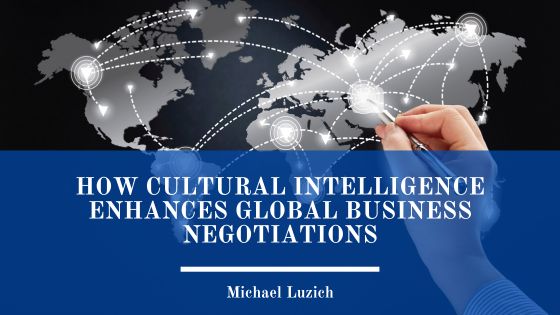In today’s interconnected world, business negotiations often extend beyond borders, involving partners from diverse cultural backgrounds. Success in these global negotiations depends not only on financial terms or strategic alignment but also on understanding and navigating cultural differences. Cultural intelligence, or the ability to recognize, interpret, and respond effectively to cultural cues, has become an essential skill for executives and business professionals engaged in international markets. By enhancing communication, building trust, and avoiding misunderstandings, cultural intelligence can significantly improve negotiation outcomes.
Understanding Cultural Intelligence
Cultural intelligence is more than simply knowing about different cultures. It involves awareness of cultural norms, values, and communication styles, as well as the ability to adapt behavior in cross-cultural interactions. This includes understanding verbal and nonverbal cues, hierarchy and decision-making structures, negotiation etiquette, and attitudes toward time and risk. Individuals with high cultural intelligence can accurately read situations, anticipate potential cultural conflicts, and respond in ways that promote collaboration and mutual respect.
Building Trust Across Borders
Trust is a cornerstone of any successful negotiation, and its importance is magnified in international contexts. Cultural intelligence allows negotiators to establish credibility and rapport with partners from different cultural backgrounds. For example, understanding whether a culture values direct or indirect communication, formal or informal interactions, or group consensus versus individual decision-making can help create a more comfortable environment. Demonstrating respect for cultural norms signals attentiveness and integrity, fostering trust that can lead to more favorable agreements.
Effective Communication and Conflict Resolution
Miscommunication is a common pitfall in cross-cultural negotiations. Words, gestures, and behaviors that are acceptable in one culture may be misinterpreted in another. Culturally intelligent negotiators are attuned to these nuances, reducing the risk of misunderstandings. They also approach conflicts with a deeper appreciation for cultural perspectives, using techniques that accommodate different negotiation styles. For instance, while some cultures may prefer a direct, fact-based approach, others may prioritize relationship-building and consensus. Adapting communication strategies accordingly enhances clarity and reduces tension.
Adapting Strategy to Cultural Contexts
Cultural intelligence enables negotiators to tailor their strategies to the preferences and expectations of their counterparts, thereby enhancing the effectiveness of their negotiations. This can influence everything from the pace and structure of the talks to the types of concessions offered and the way agreements are formalized. Recognizing how cultural attitudes toward hierarchy, authority, and risk impact decision-making allows negotiators to position proposals more effectively. It also helps in identifying shared interests and potential deal-breakers that might not be apparent without cultural insight.
Long-Term Benefits of Cultural Intelligence
Beyond immediate negotiation outcomes, cultural intelligence contributes to stronger long-term business relationships. By demonstrating respect and understanding, companies can build partnerships that extend beyond a single transaction. Culturally intelligent organizations are better positioned to operate in multiple markets, manage diverse teams, and adapt to changing global business environments. This skill not only improves negotiation success but also enhances overall organizational resilience and competitiveness.
Conclusion
Cultural intelligence is a critical asset in global business negotiations. By fostering trust, improving communication, and allowing for strategic adaptation it helps negotiators achieve mutually beneficial outcomes while avoiding misunderstandings that can derail deals. In an increasingly globalized economy, investing in cultural intelligence is not optional, it is essential for professionals and organizations aiming to succeed across borders and build enduring international partnerships.

